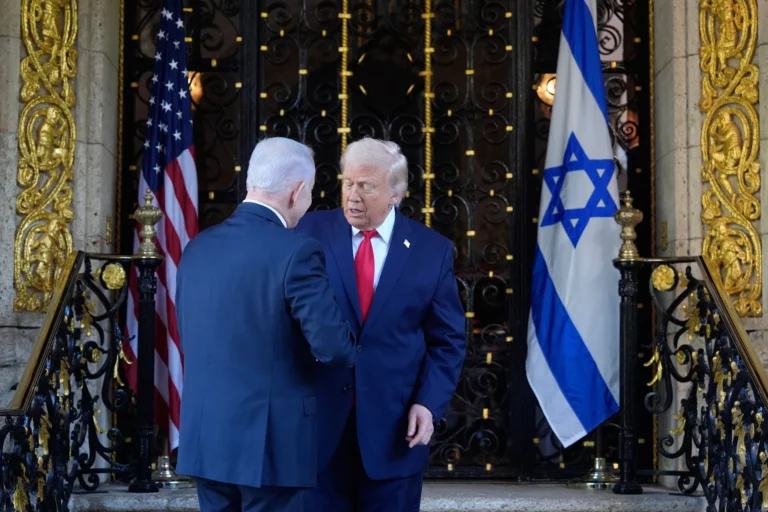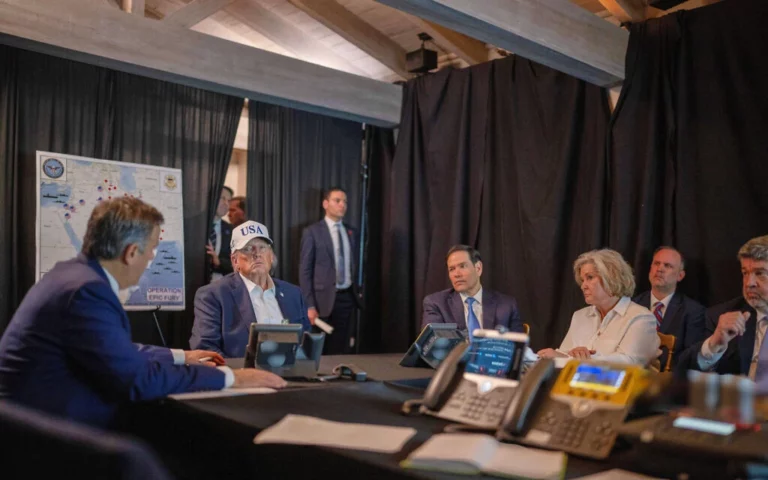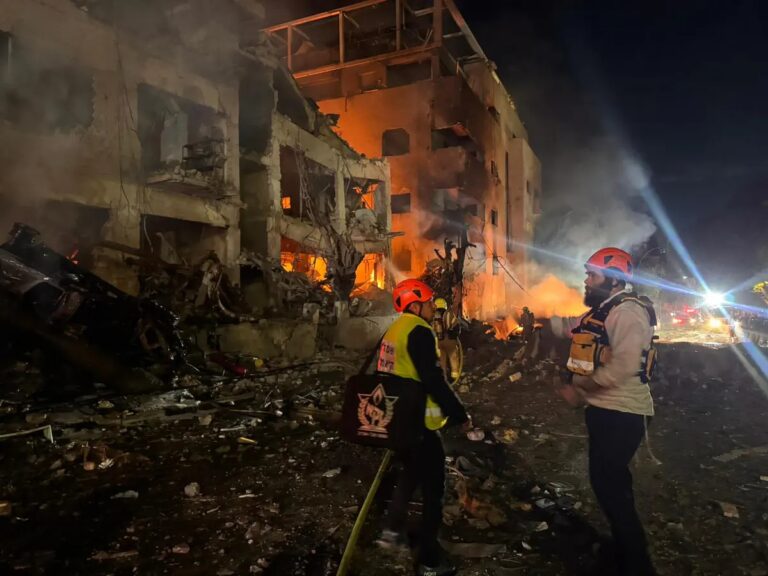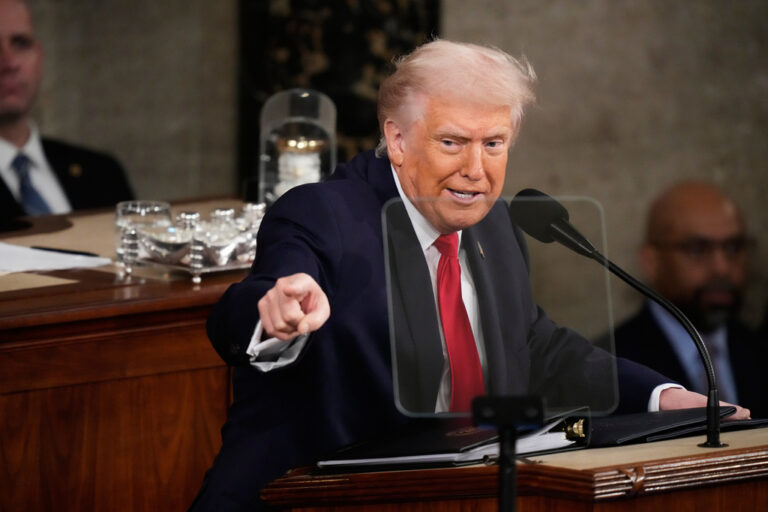 A proposed Native American casino on 333 acres in the Catskills is likely to be rejected by federal authorities next week, only three months after Gov. David A. Paterson approved the $560 million project in the waning days of his administration.
A proposed Native American casino on 333 acres in the Catskills is likely to be rejected by federal authorities next week, only three months after Gov. David A. Paterson approved the $560 million project in the waning days of his administration.
The former governor signed agreements with the Stockbridge-Munsees, a tribe based in Wisconsin with roots in New York, in November to permit a Las Vegas-style casino near Monticello, about 90 miles from New York City, and to settle the tribe’s land claim to 23,000 acres in upstate Madison County.
The casino seemed to be on a fast track. Having negotiated with the Interior and Justice Departments for more than a year before signing the deals, the tribe expected to get the necessary federal approvals this month.
But in January, according to the tribe, federal officials suddenly expressed misgivings about the viability of the tribe’s land claim and the ability of the Interior Department to approve it without Congressional action, as the tribe wanted. In a Jan. 31 letter to the department, a lawyer for the tribe acknowledged that department officials had told him it was “highly unlikely” the officials would change their views.
The Interior Department has done “an about-face,” said Kimberly Vele, president of the Stockbridge-Munsee Community Band of Mohicans. If the agreements are rejected, Ms. Vele said, the tribe will resume its fight for the land in Madison County.
“We’ll go back to fighting it out in the court system, which is an unfortunate consequence,” she said. “I’m confident that the tribe has a very good case.”
Nedra Darling, a spokeswoman for the department’s Bureau of Indian Affairs, said only, “The Department of the Interior is in the process of reviewing the compact.”
The department must approve or disapprove the agreements by Feb. 18. Under federal law, the agreements would effectively be approved if the department took no action by then. But recently, the department has been reluctant to approve casinos far from a tribe’s home base.
Senator Charles E. Schumer, Democrat of New York, and local officials have supported the casino project, which they say would create jobs and bring visitors to an economically depressed area.
But the project has come under fierce criticism from some legislators and rival gambling operators, who have thousands of electronic slot machines at nine racetracks in the state. The Oneida tribe, which operates the Turning Stone casino near Syracuse, also objected to allowing what it called an out-of-state tribe to set up a casino in New York.
Last week, some owners of the slot parlors at the tracks, known as racinos, filed a lawsuit in State Supreme Court in Albany aimed at blocking the Stockbridge-Munsees from building the casino. At the moment when the state is facing a $10 billion deficit and thousands of layoffs, the racinos assert that a Stockbridge-Munsee casino would result in the loss of 1,000 jobs at racinos and of $400 million a year in slot revenue that now flows to the state.
They say the Catskill casino, with slot machines as well as roulette, blackjack and poker tables, would almost certainly wipe out the nearby racino at Monticello Raceway and lure customers from the Yonkers, Saratoga and soon-to-open Aqueduct racinos.
Officials at the racinos, particularly Yonkers and Aqueduct, are also worried about the possibility that a full casino could be built on Long Island by the Shinnecock Indians, who won federal recognition last year.
James D. Featherstonhaugh, an owner of the track and slot parlor in Saratoga, said racinos paid a tax of 42 percent on net gambling revenues, collectively generating about $1 billion a year for education. But, he said, Indian casinos pay a maximum of 25 percent of slot revenues to the state. “The Stockbridge-Munsee casino has an unfair competitive advantage that seriously jeopardizes the future of New York’s racinos and the horse racing industry as a whole,” he said.
Not long ago, Mr. Featherstonhaugh, who is also a prominent Albany lobbyist, represented the St. Regis Mohawks who tried to build a casino in Monticello.
The Stockbridge-Munsees say the casino, which would provide the equivalent of 4,900 full-time jobs, would be the single largest construction project in Sullivan County. The tribe has agreed to pay the state up to 25 percent of the slot revenue and provide the county with $15 million a year.
“Interior said this is the path you could pursue,” said Ms. Vele of the Stockbridge-Munsee. “I don’t know what happened.”
Have you checked out YWN Radio yet? Click HERE to listen!
(Source: NY Times)











3 Responses
Well, it is sort of like, fraud.
The idea of reservations gambling is that the Indian tribe’s, who originally owned the land, have a right to do what they want on their reservation. This was bargained for. They gave up huge amounts of land (e.g. all of upstate New York) in return for small amounts of land and freedom to do what they want. While it was a coerced deal (one side had a gun pointed at its head), it was a deal.
How does a tribe that isn’t from the area get to open a reservation in a place they never lived. If New York wants
casinos, all they had to do is pass the necessary state laws and open casinos (as did New Jersey and Nevada). No need to deal with a sham reservation with out of state indians. Indeed, the New York indians are refusing to have anything to do with this nonsense (okay, they want upstate back, but not to open casinos on it).
“the Stockbridge-Munsees, a tribe based in Wisconsin with roots in New York”
They were a branch of the Mohicans, and some lived in the area between Albany and the state line. They were a very minor tribe (at least in New York), since the Iroquois controlled the area. They had no connection to the area where the casino is to be built.
If New York wants casinos, it only takes a state law (probably a state constitutional amendment, meaning a referendum). Enough with recruiting Indians to have an official reservation so the state can run a casino!